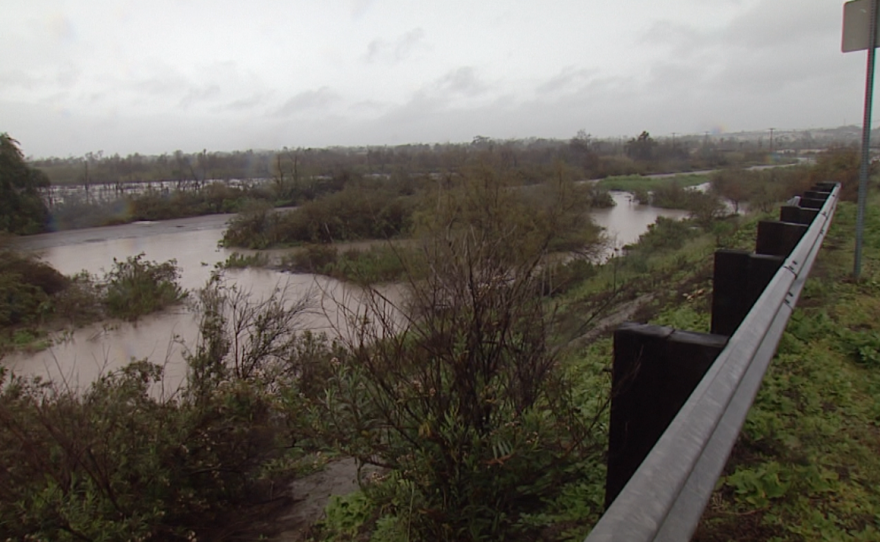A bipartisan federal bill was introduced Monday that aims to rehabilitate the Tijuana River Valley after a series of sewage spills in the area and to implement ways to prevent future spills.
The Tijuana River Valley Comprehensive Protection and Rehabilitation Act of 2017, introduced at a news conference by Reps. Juan Vargas, D-San Diego, and Darrell Issa, R-Vista, would provide grant funding and develop a coordinated plan to update the area's infrastructure to prevent the flooding of sewage, trash and sediment into the area along the U.S.-Mexico border.
RELATED: Imperial Beach Poised To Sue Over Sewage Spills
"Sewage from Tijuana has been flowing into the Tijuana River Valley, into beaches in San Diego County, and our communities for too long," Vargas said. "This legislation will help rehabilitate the Tijuana River Valley and rebuild the infrastructure needed to prevent future spills."
Vargas, who represents the border region, said the bill would develop a coordinated program involving federal, state, local and Mexican agencies and departments to provide technical assistance for the conservation, stewardship, and enhancement of physical infrastructure on both sides of the border to prevent flooding and wastewater, sewage, trash and sediment spills in the Tijuana River Valley.
RELATED: Cross-Border Sewage Spill Response Uncovers Ongoing Problems
The bill also would direct the Army Corp of Engineers to produce a feasibility and technical assistance plan to update wastewater infrastructure. Once a plan is finalized, the Army would provide grants for infrastructure projects on both sides of the border.
Issa said the impact of continuing spills will be felt for generations to come unless preventative action is taken now.
"Allowing the sewage and wastewater to flow up into San Diego County not only hurts small business and our tourism-reliant economy but also poses serious health consequences for local communities and the border patrol agents who have been harmed in their ability to secure our border by the ongoing contamination," Issa said. "Solving this problem will come only with strong bipartisan and international cooperation."
The bill would also create an alert system to provide updated and timely information on water testing results and sewage, trash and sediment spills to the public and government officials online.





